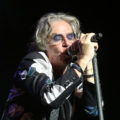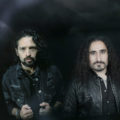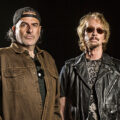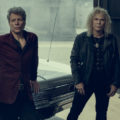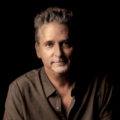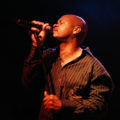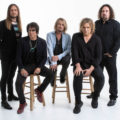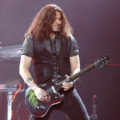Let the “Vibrating” begin with the “Shine” of colossal alternative rockers Collective Soul
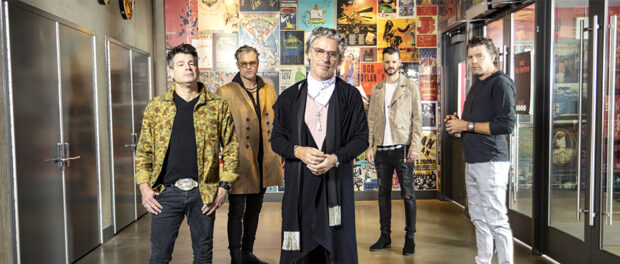 Photo provided by John Fulton
Photo provided by John Fulton
During alternative rock’s explosion in the front half of the 1990s, Collective Soul was moving albums by the millions and went on to be a defining force of the entire era.
But the Georgia-bred band has since transcended generations thanks to the indestructability of chart-toppers such as “Shine,” “December,” “The World I Know,” “Gel,” “Precious Declaration,” “Run” and “Heavy.”
Yet the group continues to stay as prolific as ever, promising “Vibrating,” the full-length follow-up to 2019’s “Blood,” will soon see the light of day and even get a test drive, alongside all the main moments, at the Genesee Theatre on Sunday, February 20.
In the meantime, original member Will Turpin checked in with Chicago Concert Reviews about being there from the very beginning, performing at both latter era Woodstock festivals and Collective Soul fully taking control of its destiny.
The band began when alternative rock and grunge started ruling the world. Where do you feel like you fit into that whole explosion?
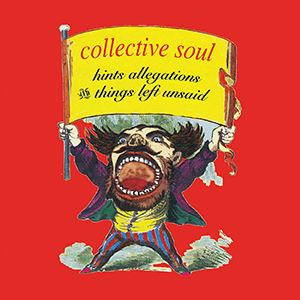 Will Turpin: You know, we’ve been doing the quintessential documentary [about the band]. We’ve been under production and I had the chance to interview [Tonic front man] Emerson [Hart] and [Better Than Ezra singer/songwriter] Kevin [Griffin] while we were on tour at the end of last year. We had a couple cameras and I was behind a camera just asking them questions so I could get some good bits from them about [back in] the day. Both of them in separate interviews kind of had the same thing to say. Both of ‘em said, “the Seattle thing was big, but not everybody was sounding like that.” We all appreciated it, but what they said, and I thought this made sense, when they heard “Shine” and they heard what Collective Soul was doing, they thought, “oh, well the water’s still gonna be fine to write good pop songs and not necessarily be so grungy and so Seattle-y.”
Will Turpin: You know, we’ve been doing the quintessential documentary [about the band]. We’ve been under production and I had the chance to interview [Tonic front man] Emerson [Hart] and [Better Than Ezra singer/songwriter] Kevin [Griffin] while we were on tour at the end of last year. We had a couple cameras and I was behind a camera just asking them questions so I could get some good bits from them about [back in] the day. Both of them in separate interviews kind of had the same thing to say. Both of ‘em said, “the Seattle thing was big, but not everybody was sounding like that.” We all appreciated it, but what they said, and I thought this made sense, when they heard “Shine” and they heard what Collective Soul was doing, they thought, “oh, well the water’s still gonna be fine to write good pop songs and not necessarily be so grungy and so Seattle-y.”
All those bands have core great songwriters. I think a key signature of the ‘90s is the songwriting…You go all the way back to “Shine” and the reason why that song was so popular was because it sounded so different. I think everybody reacted the same that enjoyed that song and enjoyed our music. “These guys don’t sound like anybody.” And then as the records went on, it was like, “try to pigeonhole that!” Our sound was everywhere. We weren’t grunge. We weren’t pop. We weren’t metal. We had elements of all of those things.
What was it like having your debut album, “Hints Allegations and Things Left Unsaid,” being so colossal?
Turpin: Since it was a collection of songs, it had not really been planned out to be our band record. For us, it was like, “okay, great, we got real success and now we’re gonna be afforded the chance to record more records” and that’s what we were excited about. We wanted to record more music and we wanted people to know more about us. While that first record was amazing for us, half those songs were really intended for a songwriter demo that Ed [Roland] was putting together to sell songs to other people and some of them weren’t recorded as a band. But again, it’s called “Hints Allegations And Things Left Unsaid” because it was kind of a collection. We knew it wasn’t really gonna be the tour de force that we knew we could offer when we got into the studio and said, “we are a band and we’re gonna record a record together.” So that was the whole intention behind naming the second record “Collective Soul.” That was really our first band record.
How were you able to keep everything so fresh for that follow-up?
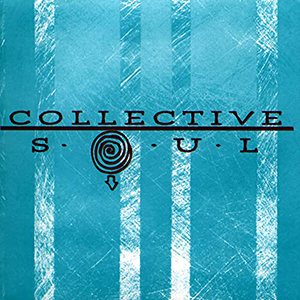 Turpin: Ed’s a prolific writer and we, especially the original guys, we were like a laser beam [with our] focus. “Here’s where we need to take this song, bam!” It’s a laser beam going straight as far as you could see. We were gonna finish it..We released four records in five years. We still have that thing where we create great music, but all four of those records just had a special place and they stand the test of time.
Turpin: Ed’s a prolific writer and we, especially the original guys, we were like a laser beam [with our] focus. “Here’s where we need to take this song, bam!” It’s a laser beam going straight as far as you could see. We were gonna finish it..We released four records in five years. We still have that thing where we create great music, but all four of those records just had a special place and they stand the test of time.
Do you have a favorite from that Atlantic Records era?
Turpin: I think probably “Disciplined Breakdown” means the most to me because it was right after the release of the second record. We were on tour with Van Halen, and Eddie got us our first meetings with lawyers and other managers cause we realized something wasn’t kosher with our original manager. We were tied up in a big lawsuit with our original manager after the second record. When we were done touring, we wanted to record more music, while we couldn’t get a budget from Atlantic Records. Everything was tied up, so the thought was, “we’re gonna be broke down, but we’re still gonna record music.” Ed was getting some publishing money and we had a little bit of income. I was driving a ‘76 Coupe Deville that was my grandfathers. We had sold four million records at that point and didn’t have any [significant] money.
We found a log cabin near our little hometown and we basically turned that main floor into the studio. It was on a shoestring budget and we worked those songs out in this cabin. You can hear the audio sounds are different. We used a lot of rods instead of drum sticks. We got more of an earthy, organic feel to it. All those sounds and the vibe that we came up with is amazing. That’s part of the charm of it. Then the lawsuit was finalized at the end of that recording and we finished it up at House Of Blues Studio in Memphis. We got the Memphis Horns on some of those tunes and added some overdubs. It was finished up in Memphis, but almost all that record was a “Disciplined Breakdown.” We were gonna be disciplined about not having anybody or any budget. We weren’t going to sit around and wait for this judgement. I like the story of how necessity breeds the creativity.
Tell us about going from major label life to a more independent mindset.
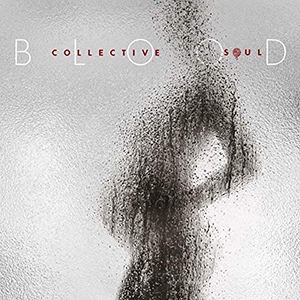 Turpin: The timing was good for us, as far as renegotiating the contract after the lawsuit had been fulfilled. The “Greatest Hits” was the last thing on that Atlantic Records contract. During that whole time, the question was, “what are you gonna do?” Record sales were plummeting. People were giving away music on the Internet. [Metallica drummer] Lars Ulrich was on T.V. talking to the judge trying to shut down Napster. We took a couple years to record some music, we analyzed it and we took a leap of faith. We hired professionals to run our label for a few releases and we just naturally kept our core business formation going. Then every time we did something with another label, it was always basically a partnership where we were fronting the money for the recordings and we were using them as a partner. It wasn’t like we were signing on their label. It wasn’t a traditional signing, which honestly today is kind of traditional. It’s basically a 50/50 partnership.
Turpin: The timing was good for us, as far as renegotiating the contract after the lawsuit had been fulfilled. The “Greatest Hits” was the last thing on that Atlantic Records contract. During that whole time, the question was, “what are you gonna do?” Record sales were plummeting. People were giving away music on the Internet. [Metallica drummer] Lars Ulrich was on T.V. talking to the judge trying to shut down Napster. We took a couple years to record some music, we analyzed it and we took a leap of faith. We hired professionals to run our label for a few releases and we just naturally kept our core business formation going. Then every time we did something with another label, it was always basically a partnership where we were fronting the money for the recordings and we were using them as a partner. It wasn’t like we were signing on their label. It wasn’t a traditional signing, which honestly today is kind of traditional. It’s basically a 50/50 partnership.
Can you give us a preview of your upcoming project, “Vibrating”?
Turpin: We recorded a lot of that the same time we recorded “Blood,” or right after “Blood,” and it’s been done about a year-and-a-half. It’s coming out finally, but it’s just one of those things where we get together and there are still those moments when your hair stands straight up on your skin. We’re still just as prolific and can create. I think it’s just as interesting. For me, it’s hard to start ranking or saying what’s better or best. They all have their moments in time. You’re only young and new once, but for me creatively, we’re stronger than we really ever have been.
How will your previous hits and latest material be balanced for this show that’s stopping by the Genesee Theatre?
Turpin: We try to do a good job just making it super interesting. If we play something new, we don’t dwell on it. Honestly, the core of our fans are so used to us always having something new. Even back in the day [we’d say], “here’s the next song we’re working on.” It’s always about 80 percent of previously released material. We honestly can’t even get to all the hits, especially when you’re talking about top five rock and roll hits that weren’t necessarily big pop hits. It’s hard to get to all of them, which is a good thing to have.
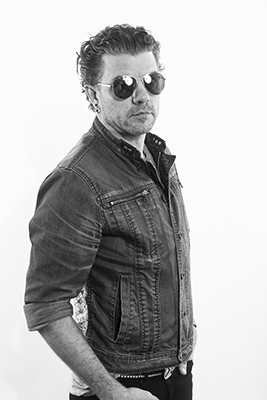 We just try to make sure it’s all about the flow of the show. Sometimes we’ll play with it and sometimes we’re wrong. “Hey, this is gonna work.” We play it live. It didn’t really work. We’ll tweak the set. It’s all about a vibe and a momentum. If we can get the set list to not ever lose energy, or momentum, or excitement, then we’ve got a good set list. I can’t stand being pretentious and being like, “oh, we’re not going to play the huge songs for ya’ll.” We still enjoy playing those songs and putting a new twist on them sometimes to make it fun for ourselves, but we’re gonna play the big ones for sure…I think we’ve got one song on the set list from “Vibrating.” We haven’t really rehearsed the whole record, but we’ve got a big show for NASCAR the following weekend, so we basically [want to] make sure we were tuned up, and found a good reason to tour and hit Chicago. We love the Genesee Theatre.
We just try to make sure it’s all about the flow of the show. Sometimes we’ll play with it and sometimes we’re wrong. “Hey, this is gonna work.” We play it live. It didn’t really work. We’ll tweak the set. It’s all about a vibe and a momentum. If we can get the set list to not ever lose energy, or momentum, or excitement, then we’ve got a good set list. I can’t stand being pretentious and being like, “oh, we’re not going to play the huge songs for ya’ll.” We still enjoy playing those songs and putting a new twist on them sometimes to make it fun for ourselves, but we’re gonna play the big ones for sure…I think we’ve got one song on the set list from “Vibrating.” We haven’t really rehearsed the whole record, but we’ve got a big show for NASCAR the following weekend, so we basically [want to] make sure we were tuned up, and found a good reason to tour and hit Chicago. We love the Genesee Theatre.
What prior Chicagoland concerts have stood out?
Turpin: I’d never been to Ravinia [prior to performing there] and that was really awesome. All the House Of Blues shows back in the day were totally unforgettable, especially Y2K New Year’s Eve. We were all just in a really good space and we had a lot of fun that night. Anybody who was there will remember. It was a blast. Sister Hazel played the night before and they stuck around to celebrate with us backstage. I just remember the crowds there. Collective Soul is a lucky band. We’ve got really good fan bases all across the country, but Chicago has always been a super-hot crowd for us.
Another major performance was Woodstock ‘94. Walk us through that day.
Turpin: That was a blur. We had just signed on to do the Aerosmith tour too and then they called about Woodstock. We got to play Friday and got helicoptered in. The bus has to park a couple miles away. You’re 23-years-old and you’ve got a hit record. I remember going up on that stage and going “oh, my God.” That still is the biggest crowd we’ve ever played in front of. All estimations were 350,000 to half a million people were there. I [also] remembered being star struck. I was a really big fan of King’s X, who was on Atlantic Records at that point too. The Atlantic Records rep was walking [us] around and I saw all three of the guys from King’s X from a distance. I remember asking the rep, “can I go say ‘hey’ to them?” I feel like I started unconsciously running towards them [laughs]. I just remember being such a fan. I went up and watched them do their whole set side stage. I was like, “oh my God, we’re two bands after one of my favorite bands of all time! What the hell?” Your nuts are in your throat. By the time we get on stage, it’s just one of those things man. You do your thing. You can only do your thing. That’s when we get out there and do the best we can.
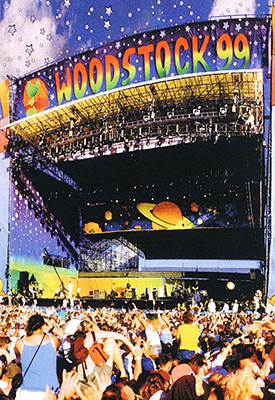 Having also been on the 1999 edition, what’s your reaction to the “Peace, Love, And Rage” documentary’s depiction of all that went down?
Having also been on the 1999 edition, what’s your reaction to the “Peace, Love, And Rage” documentary’s depiction of all that went down?
Turpin: Our good friends from Atlanta, Sevendust, played right before us, so we had fun with them, but we were on the adjacent tarmac, and the night we played, the shit hadn’t really hit the fan. I mean we crushed [Ozzy Osbourne] “Crazy Train.” We crushed some good versions of [our] songs and the crowd was going crazy, but they hadn’t got pissed off yet, so we didn’t really feel a whole lot of the fire stuff. We saw that on the TV the next night when we were somewhere else.
What other prominent points with the band have meant a lot to you?
Turpin: The biggest live production that still stands out is “Home,” with the Atlanta Symphony Youth Orchestra. We did two nights in 2005 and it was just super special. It was the biggest production we really have ever overtaken. We’re talking about 18 HD [high-definition] cameras and a lot of money, but that one sticks out. It was just really fun to work with the kids. We had two days of rehearsals and it just turned out awesome. As a matter of fact, we’ve still got those charts. We’re talking about taking that on the road at the end of this year, trying to hit some major markets, play with their adult symphony with those charts and then add some new charts from some of the new records. “Home” sticks out and getting inducted into the Georgia Music Hall Of Fame was a great night. There’s something in the water down here. It’s a good club to be part of, everybody from Ray Charles, to James Brown, to southern rock with The Allman Brothers Band and The Black Crowes. Chuck Leavell, The Rolling Stones’ band leader, was inducted the same night that we were inducted. My family was with me as well. That was a really good night.
Off the top of my head those are moments and where we are now is amazing. The industry people started telling us three or four years ago, “you’re about to hit this thing in your career where you’re a legacy band. You’re gonna realize that your songs aren’t gonna go anywhere. [They’ll go on] forever, past your life expectancy. More and more people are going to want to continue to see you play without you necessarily have to chase down hits,” although like I said, the creative side is still there for us. It’s been fun to just watch the popularity stay the same and watch these multi-generational families showing up. Years ago, we’d see fathers and sons. [Now], I’m not kidding you, I’ve seen three generations at our shows before: a grandfather, a father and a ten-year-old son. They’re all checking out this band from Stockbridge, Georgia…The only people that can screw us up now are ourselves. We’re gonna keep feeding this legacy and see how far we can go.
Collective Soul performs at the Genesee Theatre on Sunday, February 20. For additional details, visit CollectiveSoul.com and GeneseeTheatre.com.

